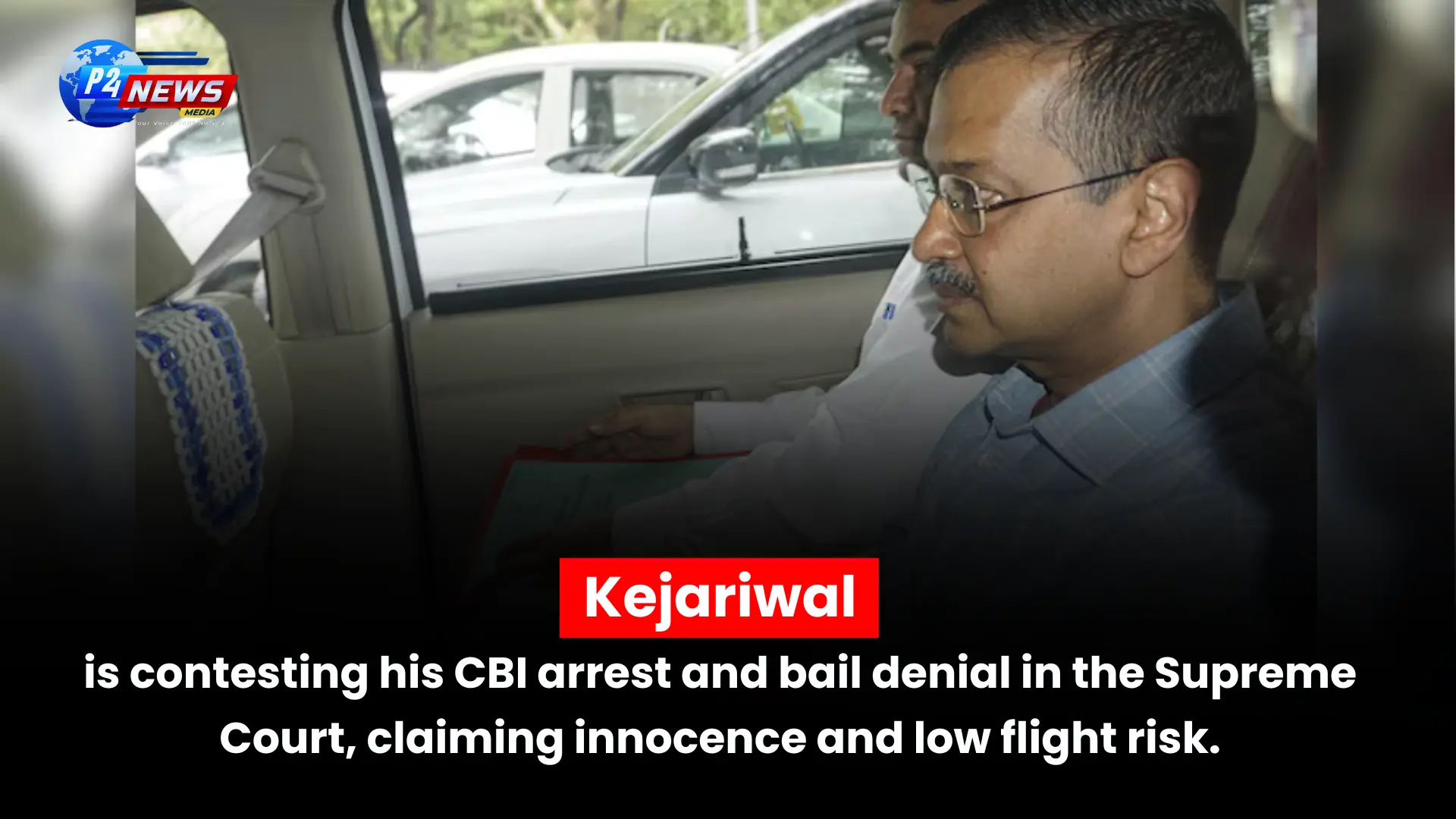The Supreme Court on Thursday began hearing Delhi Chief Minister Arvind Kejriwal’s plea challenging his arrest and the denial of bail by the CBI in the alleged excise policy scam.
The Supreme Court on Thursday began hearing Delhi Chief Minister Arvind Kejriwal’s plea challenging his arrest and the denial of bail by the CBI in the alleged excise policy scam.
The Supreme Court on Thursday began hearing Delhi Chief Minister Arvind Kejriwal’s plea challenging his arrest and the denial of bail by the CBI in the alleged excise policy scam.
Senior advocate Abhishek Singhvi, appearing for the chief minister, told a bench of Justices Surya Kant and Ujjal Bhuyan that Kejriwal was not named in the CBI FIR and, moreover, he is not a flight risk. Singhvi also emphasized that the top court, while granting interim bail in the money laundering case, had already indicated Kejriwal did not pose a threat to society.
The alleged scam, which began in August 2023, has led to significant legal actions, including Kejriwal’s arrest in March 2024 as part of the money laundering case. Singhvi pointed out that both the top court and a trial court had already granted bail in relation to the money laundering charges.
The Supreme Court is currently in session, hearing Kejriwal's arguments. Previously, on August 23, the court allowed the CBI to file a counter affidavit and gave Kejriwal two days to submit a rejoinder.
Kejriwal has filed two separate petitions: one challenging the denial of bail, and the other contesting his arrest by the CBI in this high-profile case. He is also challenging the Delhi High Court’s August 5 ruling, which upheld his arrest as legal.
On August 14, the Supreme Court refused to grant interim bail to Kejriwal and sought a response from the CBI on his plea challenging his arrest. The Delhi High Court, in its August 5 ruling, declared Kejriwal’s arrest by the CBI lawful, stating there was no malice in the CBI’s actions and affirming that Kejriwal could influence witnesses, many of whom only came forward after his arrest.
The controversial excise policy, central to the case, was scrapped in 2022 after the Delhi lieutenant governor ordered a CBI probe into alleged irregularities. According to the CBI and ED, the formulation and execution of the policy involved undue favours to license holders, leading to widespread corruption.
Like
Dislike
Love
Angry
Sad
Funny
Pray
9th Ayurveda Day in Melbourne: A Celebration of Ayurvedic Innovations and Global Health Impact
November 10, 2024Australia’s Terror Alert Jumps to ‘Probable’: What You Need to Know About the Increased Risk
August 05, 2024🍪 We Value Your Privacy and Experience Hi there! We use cookies to enhance your browsing experience, provide personalized content, and analyze site traffic. By continuing to use our site, you consent to our use of cookies.







Comments 0